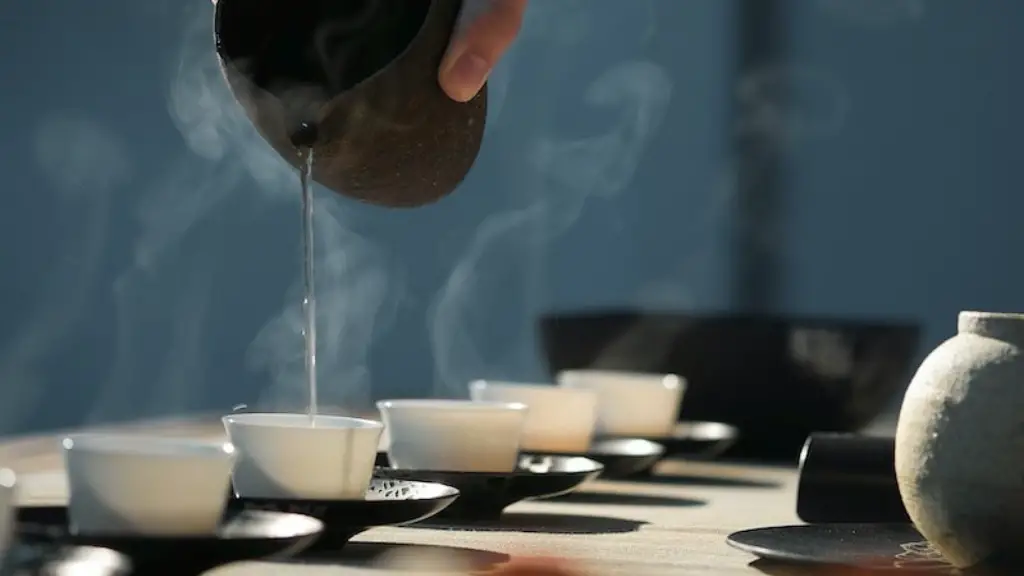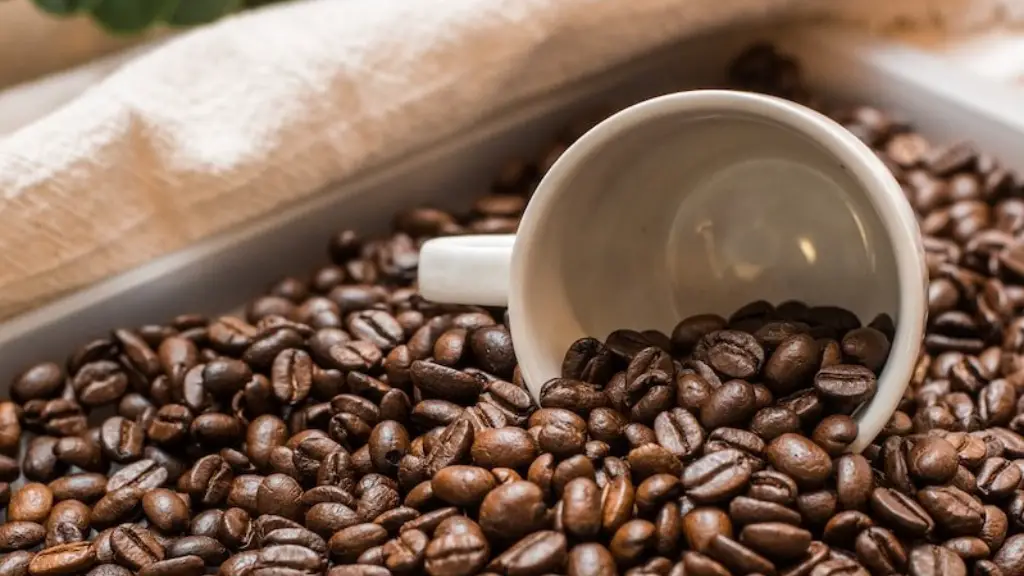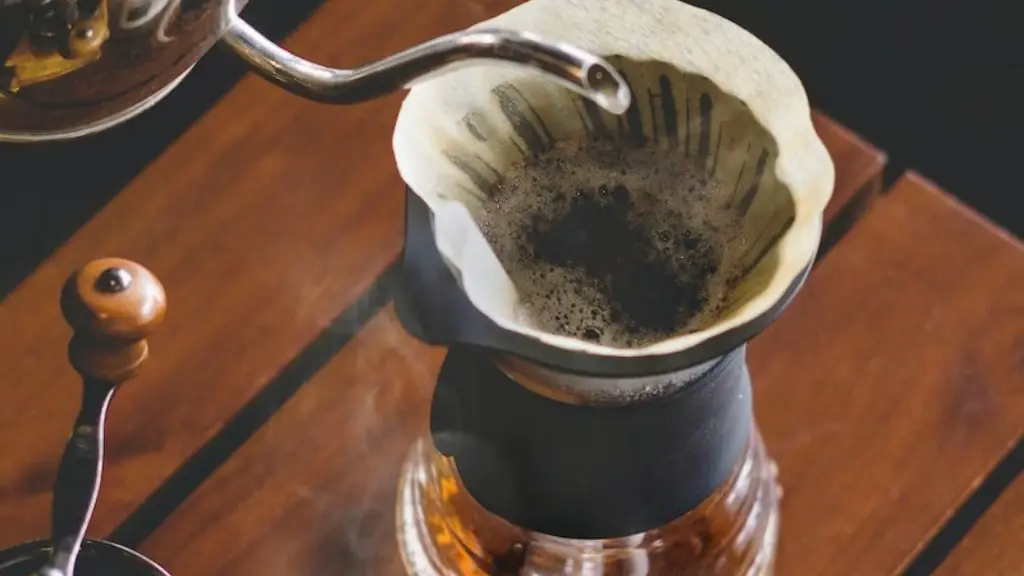Coffee is a classic morning pick-me-up for many people. The rich, dark liquid, loaded with a unique flavour and aroma, is often an important part of the day for many. But, what if you drink coffee everyday? You might be surprised to learn the benefits and drawbacks that this everyday behavior can bring.
Coffee is an incredibly popular beverage, and for good reason. It contains a range of beneficial compounds, including caffeine. Caffeine has been extensively studied, and studies have generally found it to improve focus and cognition, provide short-term stress reduction, and even boost metabolism and physical performance. This is why drinking coffee everyday can have considerable health benefits.
However, there is also a downside. Too much coffee can have the opposite effect, and can cause anxiety, insomnia, and even irritate your stomach. It is important to remember that coffee contains a lot of caffeine, so consuming too much can lead to these unwanted reactions. Therefore, it is important to monitor your intake, and not to rely on coffee as your sole source of caffeine, as the effects can quickly become counterproductive.
Experts suggest that a good rule of thumb is to not consume more than 400 mg of caffeine per day, which is roughly four cups of coffee. Additionally, it is best to drink coffee in moderation, as the half-life of caffeine is four to six hours, so it is possible to become reliant on the stimulant. That being said, as long as you are aware of the effects of caffeine and monitor your intake, there is no need to worry about your daily coffee.
Finally, if you are drinking coffee everyday, you should consider the various forms of caffeination available. Aside from regular coffee, there is also decaf, which still contains low levels of caffeine, and tea, which has its own unique set of beneficial compounds. Additionally, there are a range of other caffeinated beverages, such as energy drinks, that can provide a boost, but should be consumed with caution. Ultimately, the choice is yours, but keep in mind that it is important to monitor your caffeine intake, regardless of the source.
Environmental Impact
Coffee is a popular and widely consumed beverage, and its production can have an environmental impact. Much of the coffee we consume is grown on large plantations, and this can lead to deforestation and the displacement of wildlife. Additionally, the transportation and packaging of coffee can strain natural resources, causing further harm.
The good news is that there are a number of ways to minimize the impact of coffee production. One option is to buy coffee that is certified as being sustainably grown, as these techniques promote the preservation of forests and wildlife. Additionally, coffee farms are increasingly using organic techniques and materials that can reduce the overall carbon footprint of coffee production.
Economic Impact
Coffee can have a significant economic impact. Coffee is a major driver of the global economy, and it is estimated that 21 million people around the world rely on coffee for their livelihoods. Despite this, coffee remains a largely untapped resource, with most of the profits going to a handful of major corporations.
Fortunately, there are a number of ways to support small coffee producers. One way is to buy directly from farmers, as this allows them to receive a larger share of the profits. Additionally, the increasingly popular ‘fair trade’ certification allows consumers to be sure that their coffee is helping those at the source, ensuring that the farmers and their families can get a decent wage.
Coffee Ad campaigns
Coffee has become a powerful symbol of modernity, success, and sophistication in popular culture. This is largely because of the many coffee advertising campaigns that have been released over the years, which have often played off of these themes. Brands such as Nescafé, Starbucks, and Kraft have all produced large-scale campaigns and have used them to create brand recognition and loyalty.
These campaigns are especially effective with the online and social media platforms available today. By taking advantage of popular culture trends and influencer marketing, companies can quickly spread awareness of their products and create an engaged community. Additionally, many of these campaigns have created a strong emotional connection between the brand and its customers, as evidenced by the intense loyalty displayed by so many coffee fans.
Health Implications
Coffee has long been associated with potential health concerns. In particular, coffee is often seen as a ‘bad’ beverage for those concerned about their health. However, recent research has found that coffee can actually have a number of beneficial effects. Studies have suggested that coffee can reduce the risk of certain types of cancer, and can also protect against diabetes and cognitive decline.
That being said, it is important to remember that too much coffee can also be detrimental to your health. Caffeine can cause disruptions in sleep and can increase anxiety and raise blood pressure. Additionally, the compounds in coffee can interact with some medications, so it is important to check with your doctor before drinking coffee if you are taking any medications. Ultimately, coffee can be beneficial in moderation, and if consumed in excess can have adverse effects.
Coffee Alternatives
Finally, for those who want a beverage but don’t want the effects of caffeine, there are a number of coffee alternatives. Herbal teas are a great option, as many of them have a similar taste to coffee, but without the stimulatory effects. Additionally, there are also a number of decaffeinated beverage options that can provide the same taste and flavour without the unwelcome jitters.
Ultimately, coffee can be an enjoyable and tasty experience, but it is important to consume it with caution. There are a number of potential benefits, but it is important to limit your consumption to avoid any potential drawbacks. Additionally, those looking for a caffeine-free alternative should look into herbal teas and decaffeinated beverages. So, next time you’re reaching for your morning cup of coffee, be sure to consider all of your options.



